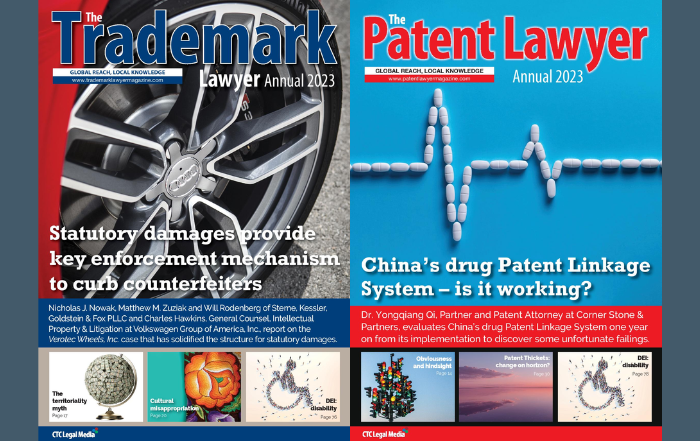This article first appeared in the Patent Lawyer Magazine Annual 2023 and the Trademark Lawyer Magazine Annual 2023.
Megan Rannard, Associate at Marks & Clerk and member of IP Inclusive, provides an insight into the difficulties facing those with disabilities when entering and integrating into the workforce and offers some first steps for promoting inclusivity.
Interviewing for a new job or a promotion can make even the bravest among us quiver in their boots. The desire to make a good first impression and the uncertainty of how others may perceive you can cause sleepless nights and weeks of nerves. We all have questions that we hope we will be asked so that we can put our best foot forward and hopefully get the job.
Speaking from my own personal experience, the uncertainty of people’s perceptions can be a huge worry for those with disabilities and many will unfortunately have had unpleasant encounters with strangers or even friends. When it comes to events such as job interviews, the question of when to disclose a disability, or whether to disclose at all, often has no clear answer and the fear of the potential impact this may have on career opportunities (even if simply as a result of unconscious bias rather than active prejudice) should not be underestimated by interviewers and employers. The fear of being viewed as “less capable” and therefore missing out on opportunities for career progression affects not only disabled individuals at the interview stage - figures suggest that around 80% of people with disabilities acquired these conditions later in life, and so the difficult questions and worries around disclosure and its impact can affect individuals at any time during their career and often without warning.
For those with visible disabilities, the choice to disclose is often automatically taken away but for those with invisible disabilities, or disabilities that can fluctuate between being visible and invisible, it can be much easier to hide symptoms and avoid disclosure in order to try to prevent the risk of experiencing negative bias in the workplace. The act of disclosure avoidance can itself have an adverse effect on an individual’s wellbeing. Those hiding their disabilities may often work extra hours to somehow compensate for this, which itself will lead to exhaustion and burnout. Without appropriate adjustments, working practices may exacerbate symptoms and make it much more difficult for an individual to maximize their potential.
It is therefore crucial to acknowledge and openly discuss the difficulties that can surround the disclosure of disabilities and resulting requests for reasonable adjustments if required. It is almost inevitable that discussions about disability will be deeply personal and often quite uncomfortable for the individual concerned. As interviewers and employers, companies should therefore take active steps to make hiring and promotion processes more accessible to individuals with disabilities and to counteract the notion that the disclosure of a disability may have negative implications for employment opportunities and career progression.
To do so requires a change in the way that we address disability as well as the promotion of a safe environment in the workplace in which individuals feel comfortable to disclose their disabilities, if they choose to do so. A culture of inclusivity and equal opportunity must be clear and visible throughout a business, including to those external candidates interviewing for positions.
Unfortunately, there is no single solution to creating a safe and inclusive workplace environment in which individuals will feel comfortable or even empowered to disclose their disabilities if they wish to do so. The process will take time and requires consistent effort at all levels of a business. To get the conversation started, some ideas for businesses to improve inclusivity and equality of opportunity for those with disabilities could include (a non-exhaustive list!):
- Becoming a Disability Confident Employer under the UK government scheme and promoting this status in job advertisements (as well as internally);
- Acknowledging or including accessibility considerations in job advertisements;
- Regular training on unconscious bias and inclusive practices for all employees, including those with hiring or promotion responsibilities;
- Having a clear and readily accessible policy for requesting reasonable adjustments so that individuals do not feel that they are requesting something unusual.
Ultimately, the decision to disclose a disability is a deeply personal one and there is no legal obligation to do so. Therefore, when a person chooses to disclose, they should be treated with respect and a collaborative approach should be taken with regard to their personal requirements. Studies have shown that diverse and inclusive workforces are advantageous to businesses and so we should aim to promote a workplace culture in which those who wish to disclose their disabilities feel more secure in doing so.



